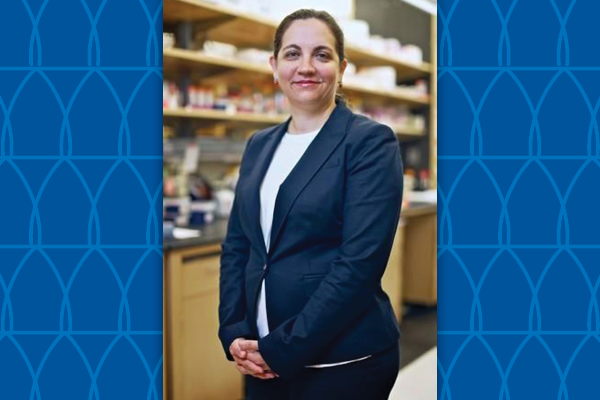
Cagla Eroglu, PhD, is the Duke Health Distinguished Professor of Cell Biology and a professor of neurobiology. Her research aims to understand how glial cells, particularly astrocytes, develop and mature to establish, remodel, and ensure the proper functioning of synaptic circuits. Additionally, her lab is interested in glial contributions to neurodevelopmental and neurodegenerative diseases such as Parkinson’s Disease.
What inspired you to pursue science as a career? Was there a specific person or experience that sent you down this path?
I grew up in Ankara, which is the capital of Turkey, and as a child I was very interested in nature. Everything about stars, astronomy, and astrophysics was very exciting to me. And I loved sea creatures and did some small experimentation as a child on the seashore. My mother is a scientist, an engineer, and having such a strong role model growing up who took me to the lab on the weekends because she had to run an experiment was probably very informative for me. My father is also an engineer and an accomplished author.
I tell my trainees always: We are not in the business of proving ourselves right. But rather it is our mission to discover the truth, which is always more exciting and elegant than what we imagined first.
I had wonderful teachers and mentors. I am particularly grateful for my late postdoctoral mentor, Dr. Ben Barres. Ben had this beautiful balance of giving you the important and necessary criticism that you need to better yourself but also lifting you up and boosting your confidence when you needed. Those were the most formative years of my scientific career; that’s when I started working on the beautiful brain cells called astrocytes.
Has there been a finding or development in your research that has surprised you recently? Tell me a bit about what that was and why it was surprising.
I am surprised by our findings almost daily; therefore I cannot give you one single example. We always start with an idea about how things work in our favorite tissues or cells (mine are brain and astrocytes) and meticulously design experiments to test it. Then we almost always get an unexpected result pushing us to broaden our view of the nature of things. I love this aspect of science and tell my trainees always: “We are not in the business of proving ourselves right. But rather it is our mission to discover the truth, which is always more exciting and elegant then what we imagined first.”
What advice would you give to young people aspiring to enter the field of science?
I want to give them a piece of advice I heard my esteemed colleague Dr. Stephen Lisberger give to a student during their committee meeting. I think it so eloquently explains science for me. “Science is not a job or a hobby, it is a lifestyle. To be successful in science, love the process.”